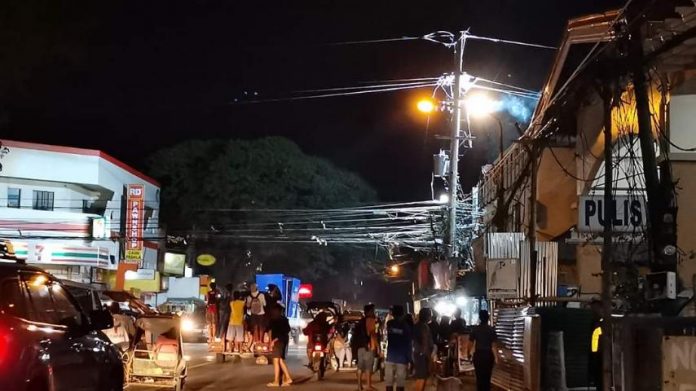
ILOILO City – A business permit is not a franchise and so is a provisional Certificate of Public Convenience and Necessity (CPCN), thus Panay Electric Co.’s (PECO) operation in this city is temporary at best, according to MORE Electric and Power Corp. (MORE Power) president Roel Castro.
The city government is poised to issue a business permit to PECO – whose power distribution franchise expired in January this year – after the latter paid its P134.9-million real property tax dues on Dec.9 or three days before the Dec. 12 auction of P90-million worth of its properties by the city government.
“Even if it had paid its tax dues and would eventually be issued a business permit, the fact remains that PECO is operating merely on the basis of a temporary CPCN. Its life is only within the transition period,” said Castro.
As to the city government’s finally collecting PECO’s long overdue realty taxes, Castro said, “It is a welcome development. We are happy. The city government now has a budget for the delivery of services to the Ilonggos.”
“Anybody who owes somebody should be paying. Like I said two weeks ago, kun indi magbayad si PECO we are willing to participate in the auction,” said Castro.
PECO failed to secure a franchise from Congress over several issues such as poor customer relations, erroneous billings, power failures, and high rates, etc.
Congress instead granted MORE Power a 25-year franchise to distribute electricity in the city. President Rodrigo Duterte signed this legislative franchise law, Republic Act (RA) 11212, on Feb. 14 this year.
Under this franchise law, there is a two-year transition period to MORE Power so as not to disrupt the power distribution, thus the Energy Regulatory Commission (ERC) issued PECO a CPCN.
The MORE Power president said his company is “on track” to take over the power distribution system in the city.
In a recent unanimous decision, the Supreme Court En Banc stopped the implementation of the ruling of the Regional Trial Court (RTC) in Mandaluyong City declaring two sections of MORE Power’s franchise law void.
PECO questioned the franchise law at the Mandaluyong RTC in July. It argued that sections 10 (right of eminent domain) and 17 (transition of operations) of the franchise law were unconstitutional.
The latest high court ruling, said Castro, was “a manifestation of the rule of law.”
“The basic rule is that every law has in its favor the presumption of constitutionality. To justify the nullification of sections 10 and 17 of RA 11212 there must be a clear and unequivocal breach of the Constitution and not one that is doubtful, speculative or argumentative,” Castro stressed.
MORE Power has filed an expropriation case against PECO at the RTC in Iloilo City but the latter was fighting it.
“With the issuance of the TRO by the Supreme Court against the Mandaluyong RTC, MORE Power is confident that the RTC in Iloilo City will take its cue and decisively rule on the Application for the Issuance of the Writ of Possession. With all due respect, the law and rules are clear: Upon compliance with the requirements, a petitioner in an expropriation case is entitled to a writ of possession as a matter of right and it becomes the ministerial duty of the trial court to forthwith issue the writ of possession,” Castro said./PN



